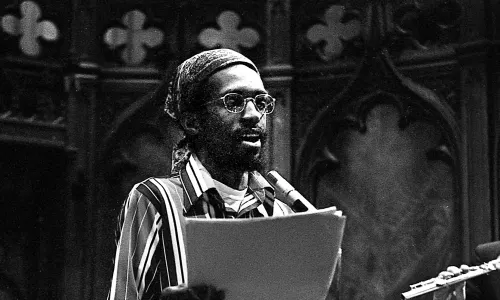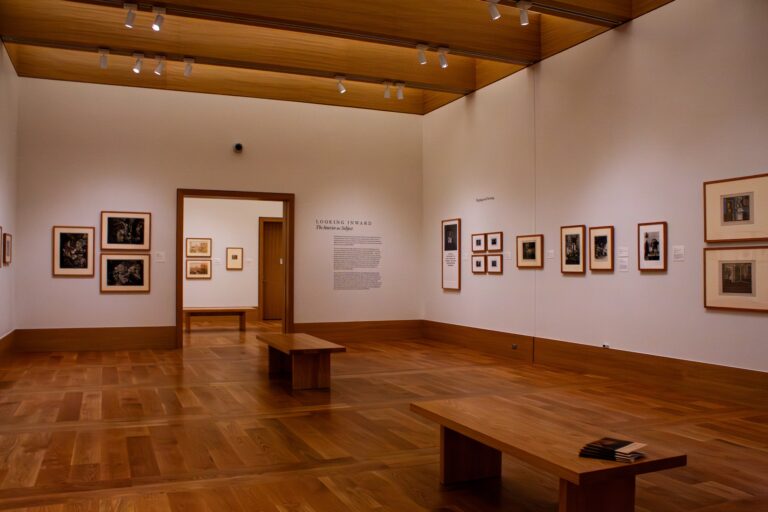Inventive Clatter: Andy Palacio
The list of visionaries who died young is long and tragic. Musically, John Lennon and Jimi Hendrix, at least in my experience, come up the most in conversation. Sadly, a great Belizean musician by the name of Andy Palacio was added to the list just a few months ago. Palacio died of a sudden stroke, leaving behind an impressive legacy of music and activist cultural influence in his native Belize.
The fatalistic human attraction to posthumous artists consistently grows, especially for those who die young. Palacio wasn’t the only one who recently received widespread recognition after his death. Breece D’J Pancake, the author who took his own life at 32, was compared to Hemingway by Joyce Carol Oates just this year.
Even though Palacio left this planet far too soon, his recent music and message resonate louder then ever. Belize saw Palacio become head of the National Institute of Culture and History, and even host a television show featuring native musicians. Palacio made his name in the ’80s with his punta-rock recordings, popular with Belizeans but still a deliberate a step away from his ancestral Garifuna culture.
The Garifuna people have an interesting and often overlooked history. West African slaves in the 1700s were shipwrecked on the Caribbean island of St. Vincent. They lived there and intermarried with Arawak Indians until the English exiled them to a small island off Honduras. The Garifuna then moved to the mainland, but their identity has faded and blurred over the centuries.
There are approximately 12,000 Garifunans living in Belize, and the Garifunan language, which is taught in only one village there, has been called by the United Nations a “masterpiece of the oral and intangible heritage of humanity.” And indeed, the language is a beautiful linguistic hybrid unlike anything I’ve ever heard. In 1980, Palacio worked on a Garifuna literacy project in Nicaragua and realized that his language and culture were fading into the woodwork.
Palacio became an outspoken member of the Garifuna community.
“I saw what happened to my people. The cultural erosion I saw deeply affected my outlook,” Palacio said of the experience.
He researched his culture’s traditional chants and rhythms, and began reconciling them with his interest in contemporary music. Up until recently, his music has been popular primarily in Belize and within the pockets of expatriated Garifuna in America.
After his recent passing, Palacio received the BBC3 Awards for World Music award. His recent release, “Watina,” is a well-produced compilation of modernized cultural tracks. While the album is not a seamless mix between old and new, Palacio’s personality shines ebulliently through it. Tom Pryor of National Geographic called it “an impassioned plea for the preservation of Garifuna language and folkways, featuring some of Belize’s legendary musicians and performers as guests.”
But like any “world music,” calling it such belittles its greater intensity. Of course, it’s easy to see why most have a hard time getting beyond the internationality of it. I’d like to think that this changed to some extent after Palacio’s death. The Guardian’s Sue Steward, in her obituary for Palacio, noted him as “a generous, energetic and committed musician…[who] began to see significant results from his efforts to raise awareness of his Garifuna culture, notably through his album Watina.”
Though still critically acclaimed as a “world music” recording, critics and fans have realized its trans-idiomatic quality. Jesse Kornbluth summed it up perfectly when he explained that “the musicologist in me wants to tell you about the richness to be found here: the sexy thrust you’ll find in the Cape Verde songs of Cesaria Evora, the raw vocals reminiscent of the Peter Tosh era with The Wailers, the lyrics about life’s everyday challenges that could have been written by Ali Farka Toure or Boubacar Traore—and, of course, the joyous bounce of Buena Vista.”But Kornbluth then admitted that “it’s the enthusiast in me that carries the day. Here are 12 songs, each radically different, that, taken together, form a classic mosaic. The electric guitar couldn’t be more seductive, the drumming catchier, the lead vocals more urgent, the harmonies more subtle.”
Even to my cynical ears, which are always on the prowl for sonic innovation, this record cut me down a notch. There are flourishes that seem initially inauthentic compared with the gritty chanting and drum rhythms, but the overall package is a fitting memoir for a musician who did so much in so little time. May “Watina” and the rest of Palacio’s work honor him well, and continue to be a beacon of preservation for his small but rich ancestry.







Leave a Reply